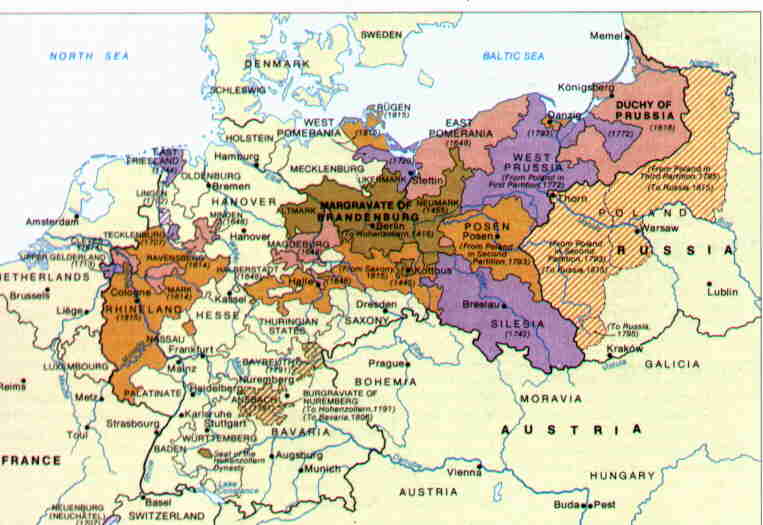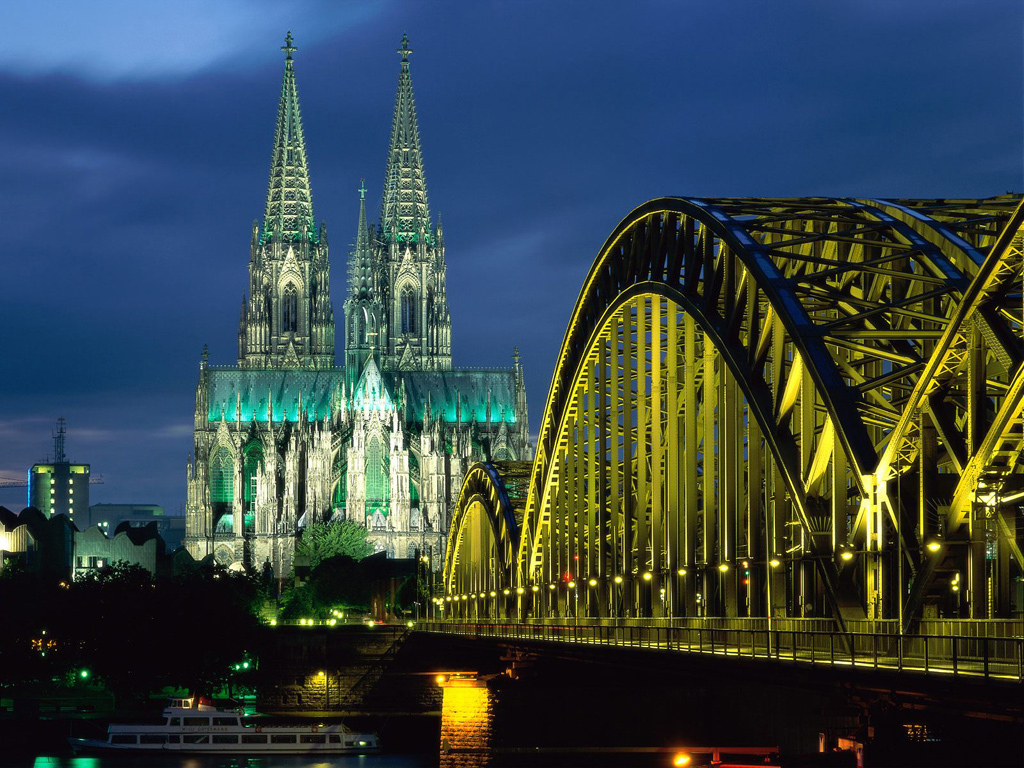The changes that took place after
both World War 1 and World War 2 are very significant. These changes reshaped the entire
makeup of Europe as a whole, and arguably made Europe what it is today. After World War 1 the German public
felt very taken advantage of by the Treaty of Versailles. This treaty left Germany mostly
crippled economically as well as emotionally. However Germany during the 19th century always
seemed to get up every time they had been knocked down. Post World War 1 Germany slowly but surely
rebuilt itself and its production began to boom. Once rebuilt the German economy became a major player in the
world market. During this time a
democracy was formed and struggles for power from within gave it trouble and it
was not as stable as it would have liked to be. These changes affect the
Germans badly at first, but through perseverance they slowly became more
confident in themselves as Germans.
It was through all of this time between the aftermath of the Great War
and the beginning of World War 2 that Germans still held a grudge because of
what happened to them from the allied sanctions.
These
resentments provided a pristine opportunity for Adolf Hitler to rise through
the ranks and emotionally sweep Germany off their feet. He isolated what had been done to
Germany economically as well as culturally and convinced masses of people that
under his leadership Germany would rise once more. “Hitler played to the emotional needs of the masses, which
the established parties ignored” (Hagen 231). This quote is important because
it really shines light upon the idea that one man took advantage of what many
other leaders didn’t, the German population. With this support Hitler really began to rise to power quite
rapidly. Throughout my education I
have always had something for history.
However I have always specifically read and researched all phases of the
time period leading up to and the ending of World War 2. It was always fascinating to me how the
opportunity for such a radical leader to rise to power and take over most of
Europe through the use of military.
It reminds me of the campaigns of Napoleon, it is truly remarkable.
With
the break out of World War 2 the German Third Reich was in a very prominent position
as far as territory goes. However in
1943 after the Russian stop at outside of Moscow the German offensive soon
became a defensive. “But after the
German Sixth Army capitulated in Stalingrad o February 2, 1943, it became very
clear even to the German population at home that the chances of victory were receding
rapidly, and from then on one defeat followed another” (Hagen 277). This quote is important because Germany
reinvented under Hitler began to once show weakness much like the end of World
War 1. It is almost as if the
cycle of defeat was repeating itself over and over again. All attempts to make Germany a world
power feared by everyone had repeatedly failed.
Eventually
Germany did unconditionally surrender in May of 1945. This set up the occupation by Allied forces of what was once
the great Third Reich. This hurt
Germany very badly it split its culture completely in two. The eastern half was controlled by Stalin’s
Soviet Union. The Western half’s
were split among the Americans as well.
Obviously Russia at this time brought its communist influence over
Eastern Germany, and the Allied brought democracy to the Western half. These differences really amplified
conflict between the two and would be a reason the Cold War took place to begin
with. Altogether I think that
Hagan does a wonderful job describing and explaining in great detail the events
that took place inside of Europe in the 19th century. These events are what shaped Germany to
be what we know it as today. I
must say that I am very excited to visit parts of history in Germany that are
from this era!
(668)














